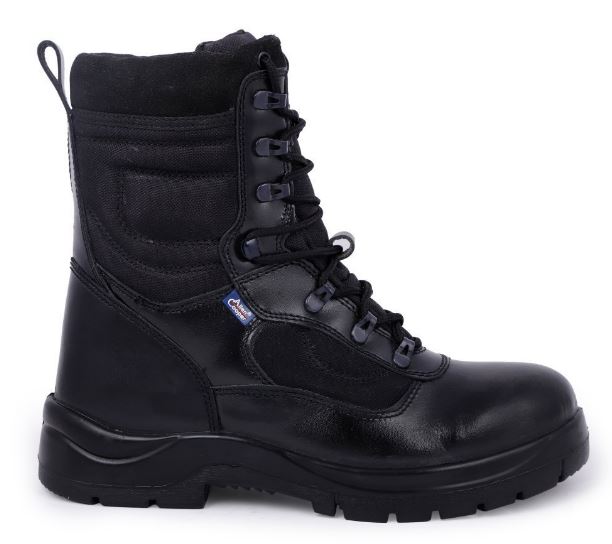Tel: 0129-4001010 Phone: +91 730 321 5033
Email: cs@absoluteveritas.com
BIS CERTIFICATION FOR PPE PROTECTIVE FOOTWEAR IS 15298(PART 3):2019
In today's competitive landscape, maintaining market presence without a certified, high-quality product can be challenging. Obtaining a BIS license may also be essential for selling products in the Indian market. To achieve BIS certification and ensure product quality, manufacturers must adhere to the specified Indian standards.
Lets delve deeper into IS 15298(Part 3):2019 for protective footwear.
Protective footwear falls under IS 15298 (Part 3):2019. This standard outlines fundamental and additional prerequisites for protective footwear.
Protective footwear with toecaps is engineered to safeguard the wearer from injuries due to accidents, meeting testing standards for a minimum energy level of 100 J and compression resistance of at least 10 kN.
Classification of Footwear:As per the Indian Standard, footwear is categorized using the following code designations:
| Code designation | Classification |
|---|---|
| I | Footwear made from leather and other materials, excluding all-rubber or all-polymeric footwear. |
| II | All-rubber (i.e. entirely vulcanized) or all-polymeric (i.e. entirely moulded) footwear. |
Protective footwear must adhere to the basic criteria outlined in this standard and must satisfy one of the design specifications specified in the standard.
All prescribed tests must be conducted following the methodologies outlined in the specification, within a well-maintained laboratory equipped with adequate facilities and staff.
TESTS
The subsequent test must be conducted for Protective Footwear:
-
Impact resistance test
-
Compressive resistance test
-
The corrosion resistance of metallic toecaps
-
Leakproofness test
-
Tear strength test
-
Tensile properties test
-
Flexing resistance test
-
Water vapour permeability and coefficient test
-
pH value
-
Hydrolysis test
-
Abrasion resistance test
-
Penetration resistance test
Depending on the workplace hazards, additional requirements for protective footwear may be necessary. In such cases, protective footwear must adhere to the additional requirements and markings specified in the standard.
Each item of protective Footwear must be clearly and permanently marked with the following information:
-
Size.
-
Manufacturer's identification mark.
-
Manufacturer's type designation.
-
Year of manufacture.
-
The number and year of this European Standard and any other information specified in the standard.
The standard mark (ISI Mark) may also be affixed to each piece of footwear. Manufacturers are required to obtain a BIS license from the Bureau of Indian Standards in order to use the standard mark (ISI Mark). This license is granted following a thorough assessment of manufacturing infrastructure, production processes, and quality control and testing capabilities conducted during a visit to the manufacturing premises by the Bureau.
PROCESS FOR BIS ISI MARK CERTIFICATION

BIS CERTIFICATION PROCESS
Acquiring a BIS license requires a comprehensive review of manufacturing infrastructure, quality control abilities, testing resources, and production procedures. This thorough assessment guarantees that products not only adhere to regulations but also prioritize consumer safety and reliability.
NOTE:
For comprehensive guidance on the BIS ISI Certification process, please explore:
WHY USE ABSOLUTE VERITAS?
Absolute Veritas is a prominent organisation from the private sector of India primarily dealing with the Inspection, Testing, Audits, Certification of products& consulting services to various industries in India and worldwide, ensuring compliance with regulatory standards and industry requirements. Offering a comprehensive range of services including product certification, testing, training, auditing, and compliance services, Absolute Veritas helps manufacturers and importers achieve higher production efficiency and quality standards.
Absolute Veritas (AV) will handle end to end pre-registration request, sample preparation, documentation, testing and application process for FMCS Certification
For any questions regarding the most recent update on FMCS registration licenses, please reach out to us via email at cs@absoluteveritas.com








 ❮
❮
